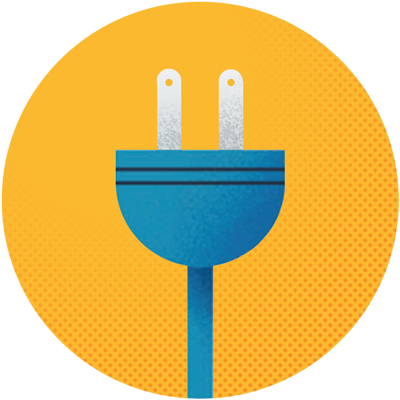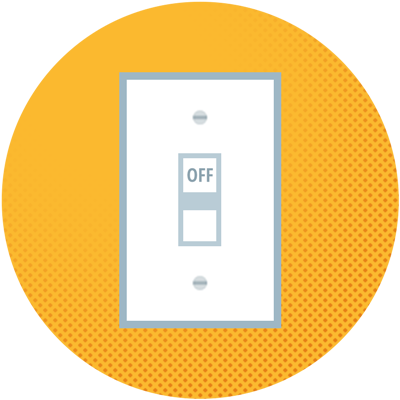
New England’s electricity consumers depend on a sophisticated power system composed of resources and transmission lines to produce and deliver electricity. To keep this system reliable, ISO New England dispatches resources to meet anticipated demand plus reserve requirements. But when this condition isn’t possible for whatever reason—such as more consumer demand than available supply—the ISO takes a series of steps to avoid a more serious emergency. These steps can include importing emergency power from neighboring regions, using power system reserves, and asking consumers to reduce their electricity usage. When conditions allow, the ISO will call for businesses and residents to conserve as a way to avoid or limit the need for controlled power outages.
In a capacity deficiency, conservation means limiting electricity use in homes and businesses at times when there is not sufficient capacity to meet demand, usually during the peak hours of 4 to 8 p.m. when people return home from work, turn up their air conditioning, cook dinner, and do laundry. Residents and businesses can reduce stress on the regional power system by shifting electricity use to times outside those peak hours, whether earlier in the day or overnight.

This is the easiest way to conserve electricity and keep your electric bill low—not just during a capacity deficiency, but also year-round. When you leave a room, make sure to turn off the lights. You should also turn off other appliances and electronics like TVs and computers when you’re not using them.
Keep curtains and blinds closed to keep sunlight from warming up your house during the day.
Lower your air conditioner thermostats to pre-cool your home in the morning and early afternoon. Keep windows and door closed to retain the cooled air. After 4 p.m., set thermostats to 78 degrees or higher, if health permits. Running your air conditioner less during peak hours reduces strain on the grid.
Anything you can do to reduce your home or business electricity use during peak hours will help reduce the likelihood and length of controlled outages. But you should never take actions that risk your health or safety.
Whenever possible, use major appliances like washing machines, dryers, and dishwashers in the early afternoon or overnight rather than in the evening. Avoid charging electric vehicles during peak hours. It’s also a good idea to charge devices like cellphones and laptops outside of peak hours.
Fans require less energy, so they’re safer to use during a capacity deficiency. You can use fans instead of air conditioning to keep cool during peak hours. Ceiling fans can be adjusted to spin counterclockwise, which creates a downdraft that helps distribute cooler air throughout the room.
Many devices continue to draw electricity even when they’re not in use or turned off. To help save every last bit of energy, unplug TVs, computers, printers, video game consoles, and microwaves. Also, if the power goes out, having them unplugged will ensure there’s no surge when power is restored.